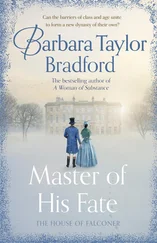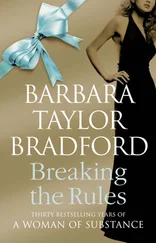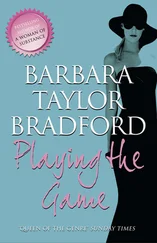Straightening his dark navy cravat, he turned away from the mirror and left the bedroom, taking out his pocket watch as he did so. It was exactly five minutes to five. He realized he might as well go down to the street. His colleague and friend Peter Keller was picking him up in a carriage in a few minutes.
He locked the door of the small flat behind him and ran down the stairs. It was a lovely June afternoon. The sun was still shining in a clear blue sky above the tall thin Georgian houses that lined their street, many of them given over to lodgings and apartments like his uncle’s. As he stood on the front steps of their building, he suddenly grinned at the sight of Uncle George walking towards him.
‘Well, well, well, don’t you look the toff,’ George said, also grinning. ‘And where are you off to, all dressed up and fit to kill?’ Then he frowned. ‘Must be somewhere special, you’re usually working till midnight.’
‘I’m going to a supper for Natalya Parkinson – Natalie, as we call her outside the office – who works at Malvern’s, as you know. Her aunt is Mrs Lorne, the well-known philanthropist. She’s giving a little celebration because Mr Malvern has put Natalie on the Hull team.’ James winked. ‘At my suggestion. She’s going to work with me on the building of the new arcade, as my assistant.’
‘Good for you, I feel pleased you know how to delegate. You got Keller promoted. I know that.’
James nodded. ‘The Wine Division needed someone to take over. And he deserved it. Look, here he comes now. At least I think he’s in this carriage coming down the street. We’re going together.’
When the carriage came to a stop, the window came down, and Peter Keller looked out at them.
‘Good evening,’ he said, opening the door. To James he murmured, ‘I didn’t know your uncle was coming.’
‘He’s not. He’s just arrived back from the newspaper.’ James squeezed George’s arm and said, ‘See you later, Uncle George.’
‘Have a good time, lads. Nice to see you, Keller,’ George answered and went into the building.
Climbing into the carriage, James sat down opposite Peter Keller and pulled the door closed. Settling against the seatback, he said, ‘I’m very glad you agreed to come. You seemed a bit hesitant at first.’
‘I think I was. I don’t know any of the other guests. Only Miss Parkinson.’ He gave James a sheepish look, and added, ‘Whom I like a lot, actually.’
James smiled. ‘I know you do, and I suspect Natalie likes you too.’
‘How do you know? Did she tell you?’
‘In not so many words, but I picked up on it. Trust me.’
‘I do. Implicitly.’ Keller leant forward, frowning a little. ‘Can you tell me something about the other guests? Of course, I know who her aunt is – Mrs Lorne, who does a great deal of charity work. I believe she gives a lot of time and money to good causes.’
‘That’s true. She’s married to an American banker, who is of like mind. Also, they’re both hospitable. But I think he’s in New York at the moment. Irina is Natalie’s younger sister. I know she designs evening gowns, and their brother is a scenic designer for the theatre. His name’s Alexander, but they call him Sandro. The last guest I know of is Aubrey Williamson. He’s a barrister.’
‘So you can help me through,’ Keller remarked. He sat back against the seat and explained, ‘I’m always a bit shy socially, especially when I’m meeting new people.’ He shrugged. ‘I don’t really know why, unless it’s because I was an only child and we didn’t socialize very much.’
‘That’s probably the reason. But you’ll be fine this evening. Just stick close to me. We’ll circulate, do the best we can.’
‘That I will,’ Keller told him.
James simply smiled and glanced out of the window. The carriage was going in the direction of Chelsea, where the Lorne house was located. He had only been there a few times. He was glad to have the company of Peter. Over the past year, they had become close friends, often had supper together, and went to the theatre or the variety shows. They lived in an overwhelmingly man’s world, one in which men socialized together, and travelled abroad or in England, supporting each other, enjoying large or small get-togethers.
He himself missed his cousin, William Venables, who still lived in Hull and rarely came to London. He smiled inwardly. Now that the Hull arcade was under way, he would see more of William, he hoped.
Keller had had a sad life as a child, James knew that. His parents had been killed in an accident in India, and he had been brought back to England by his nanny. The two of them had lived with his maternal grandmother. She had loved him, looked after him well, but he had been a lonely boy. For all that, he was quietly friendly and was one of the best-informed people James knew. Keller was a voracious reader, devoured books, and was always seeking knowledge. He had told James there had been a truly nice teacher at Rugby, who had mentored him, been a big influence on him in those years. ‘Mr Parsons helped me to open up,’ he had told him once. ‘He gave me self-confidence and told me to value myself, to have the belief that I could do anything if I really tried.’
James was convinced that that teacher at Rugby had put Peter Keller on the right path and that was why he had done so well at Malvern’s. Certainly he had got the Wine Division back on track this past year, for which James was grateful. Peter was twenty-three and would soon be twenty-four, but at times he seemed older than that. Perhaps because of his childhood years. Shorter than James, he had dark hair and a serious face.
How lucky I am, James suddenly thought. I have a big family around me, who have always been there for me, had my back, and given me the greatest start in life. Last month, at the end of May, they had celebrated his twentieth birthday with love and generosity.
‘I believe we’ve arrived,’ Peter Keller announced as the carriage came to a stop.
Pulling himself out of his reverie, James agreed. ‘Indeed we have,’ he said. ‘So, brace yourself Keller! Let’s go inside and knock ’em dead!’
Francesca Lorne paused under the arched entrance to the drawing room, catching her breath in surprise and pleasure. The late afternoon sun was slowly fading, its last rays filling the room with sudden brilliant light, giving it a burnished look. Everything gleamed.
It occurred to her that the room looked different this evening and, of course, it did. Irina, her niece, had been at work. She had filled it with numerous vases of flowers, rearranged certain objects of art, and put new cushions on the sofas and chairs; done one of her ‘fix-ups’, as she called them. Irina could do wonders with quite ordinary things, bringing new life to any room in this house.
Francesca loved Irina and her sister Natalya, as if they were her own daughters. And, in a sense, they were. She and her husband Michael were childless and had brought them up for the past eleven years and had helped to make them who they were today.
When Francesca’s brother, Maurice, and his Russian wife, Kat, had decided to move to Shanghai, the girls had not wanted to go. They had begged their parents to let them stay in London with their aunt and uncle.
Francesca and Michael were genuinely happy to become their guardians and to bring them into their home to live with them. Maurice and Kat had been relieved and touched by this generous offer, and the girls had been well educated and looked after with great care and affection. Natalie, at twenty-five the elder of the two, had sometimes mothered Irina to a certain extent. But it was to Aunt Francesca that they usually turned for advice. Now grown-up young women, they were lovely to look at and a joy to be around. They still lived at the Chelsea house with their aunt and uncle.
Читать дальше












